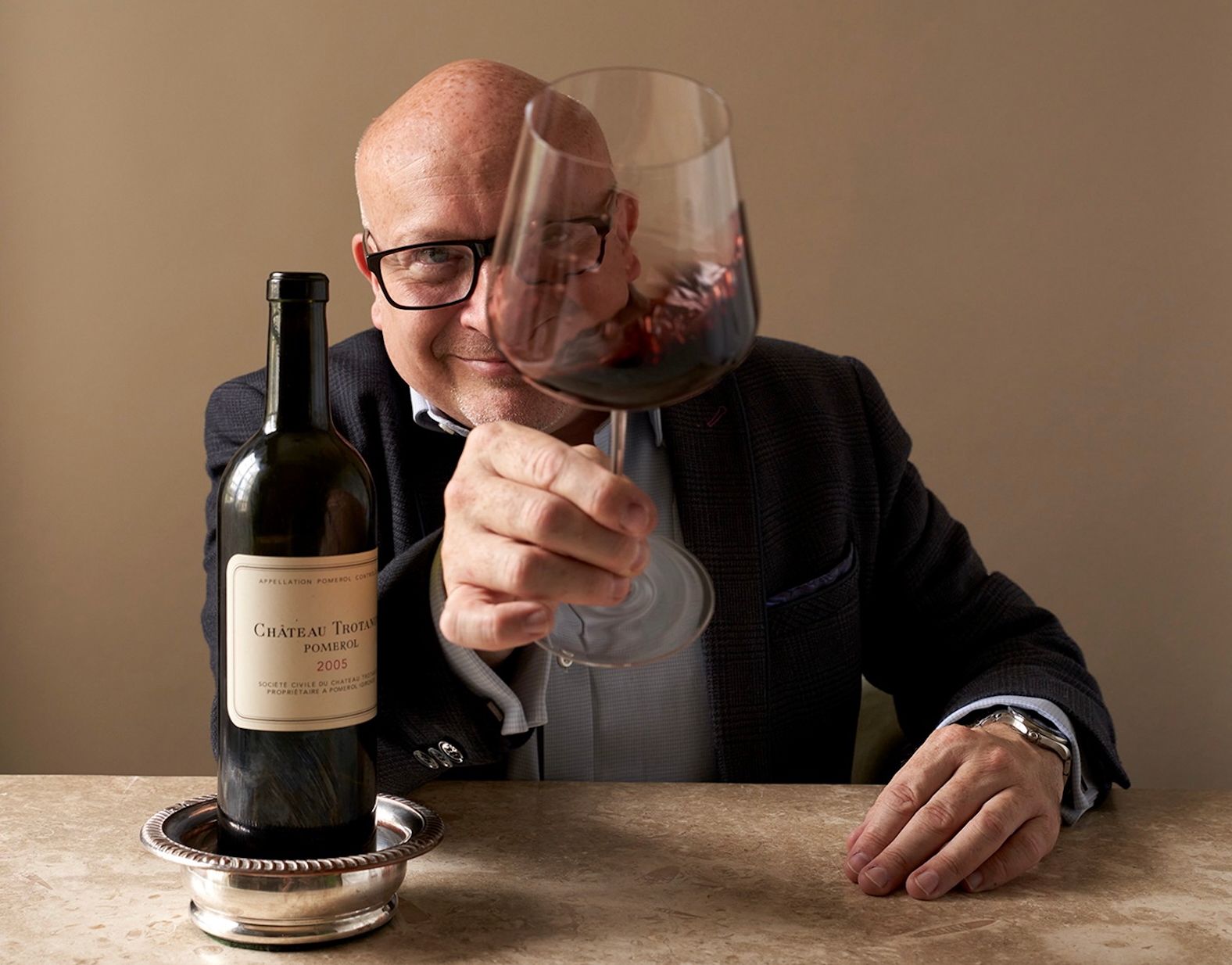The Court of Master Sommeliers is behind so many of the award-winning and top sommeliers around the world, but can you explain its primary role?
Our primary role is to establish an internationally recognised sommelier title and promote the sommelier profession's development with integrity. We aim to foster excellence in beverage sales and service while mentoring and encouraging junior staff. The courses and exams provide a clear career pathway for those wishing to work as sommeliers and offer an international passport to employment worldwide.
It has grown and grown to become a global organisation - can you give us an idea of the scale and how that has grown?
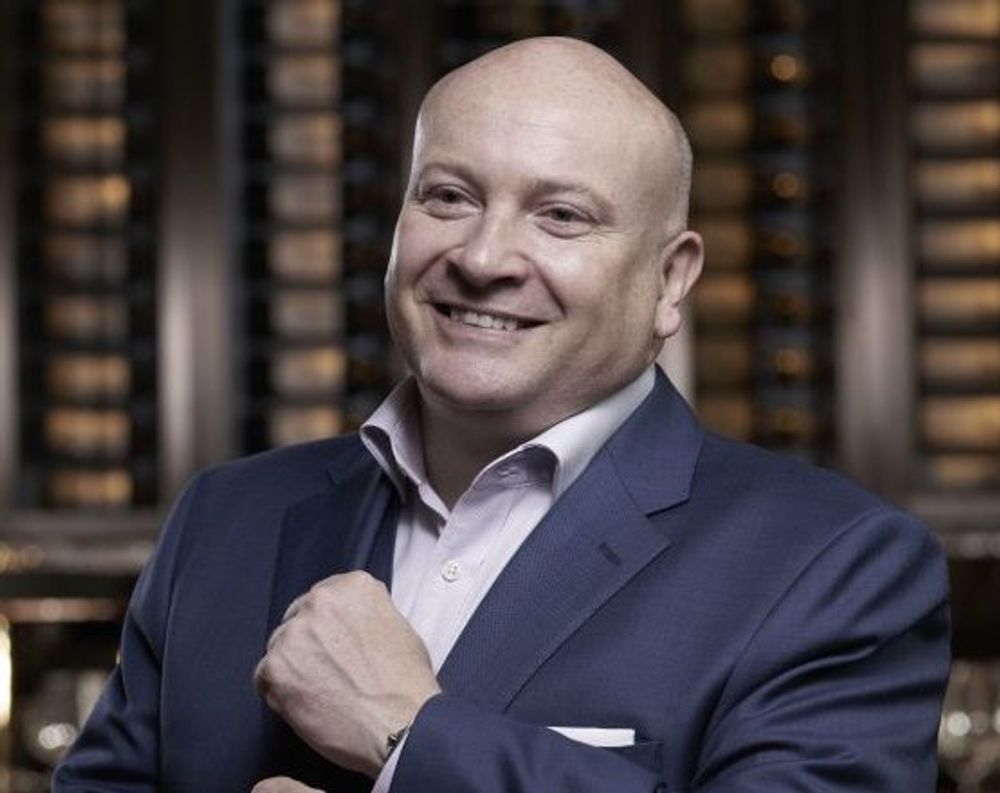
As well as reaching the peak of the sommelier ladder Ronan Sayburn MS has dedicated his lilfe to helping other sommeliers achieve as much as they can with the Court of Master Sommeliers
Currently, we run courses in 19 countries and 25 cities across Europe, Asia, Africa, and Oceania. We organise around 35 courses and examinations covering the four levels of our exams and examine around 1,200 students per year. We would have conducted about a third of that number 10 years ago. This shows a significant growth in what we do and where we operate.
The Court of Master Sommeliers Americas also operates in North and South America, Canada, and South Korea, it is run as separate organisations but we work together to provide the same standards at each level of exam.
Where are you seeing the most growth and why is that?
The UK and Europe have always been our main markets, and they still are strong, but we have seen significant growth in Asia, particularly in China and India, as well as in Oceania, Spain, and Greece.
As employers recognise the benefit of having dedicated beverage staff who generate profit for the business, we are getting more support from wine merchants and hospitality operators across the industry. Many employers worldwide now require staff to hold one of our qualifications as a minimum when hiring sommeliers.
You are have just celebrated a big milestone in Asia - what was that and why has Asia become such an important area for you?
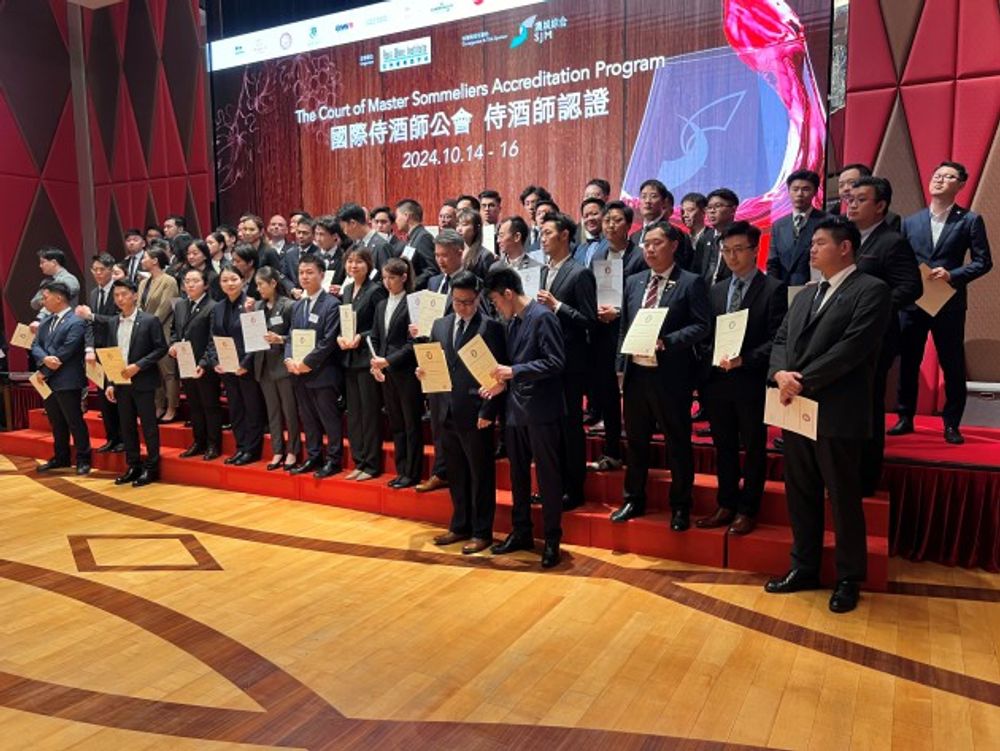
The Court of Master Sommeliers has now accredited 2,000 Master Sommeliers across Asia
There has been a surge in wine sales across Asia over the past 15 years, which has increased the demand for qualified wine service staff. We have been present in China and Singapore for 20 years and recently celebrated our 2000th Asian certification.
This year marks our tenth year in India, and we now regularly conduct courses in Thailand, Vietnam, and Kuala Lumpur, with Indonesia and Cambodia in the pipeline. The availability of wine in these countries is often as extensive as in European cities, and the work and study ethic of the students is commendable.
Talking of celebrations, you are counting down to your 50th anniversary in 2027 - what do you have planned for that?
We will spend a long weekend in Pauillac, Bordeaux, enjoying a few tastings, visits to châteaux, and a grand dinner at a well-known château, where we have invited many of our global partners and sponsors, as well as MS’ from all over the world.
Your own role with CMS has grown over the years - can you explain what your current responsibilities are?
I began working on the Court's social media around 2009. After that, I became chief operating officer and later chief executive in 2018, a part-time role. Now, I am both CEO and treasurer, and with the significant increase in global courses, I am working full-time.
One of the unique aspects of our teaching and examination process is that Master Sommeliers exclusively conduct it. Since very few of us can, or want to teach, or have the time to do so, I often teach quite a lot.
My role is to encourage those MS’ who wish to teach and provide them with opportunities. This opens new markets for us and fosters growth within the sommelier community in the regions we visit to teach and examine. Our courses help strengthen the community of sommeliers in whichever country we are present.
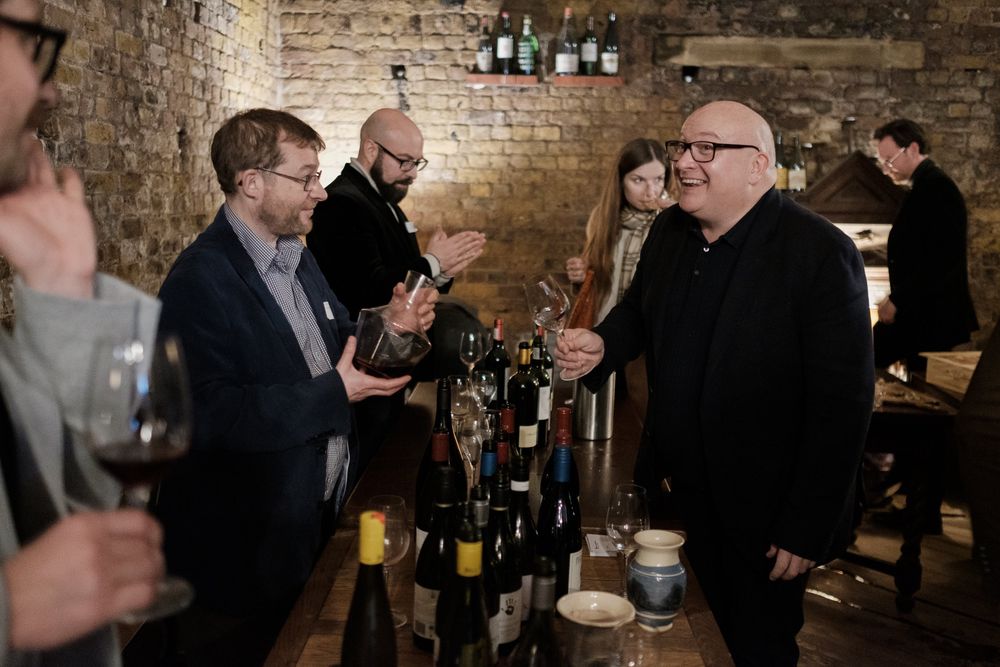
Ronan Sayburn MS says acquiring a Master Sommelier accreditation is like getting a passport to work as a sommelier anywhere in the world
Sommeliers often work alone and are the only ones fussing over their glassware and fridge temperatures. At the same time, an army of chefs and waiters carry out their tasks, so the sommelier's job can be solitary. Creating opportunities to network and form communities is essential, and our courses help facilitate this along with local businesses and sommelier associations.
Why is the CMS and what it does so important to you that you want to switch from working in restaurants to help running it full time?
As mentioned, our courses provide the framework to enable individuals to pursue a career as a sommelier. The most rewarding aspect is that by starting them off with a Level 1 exam, along with the motivation and inspiration that the Court provides, it can set them up for a lifetime of personal study and development, with the ethos of constant improvement while hopefully remaining humble, and for a future in wine.
This career could be within hospitality as a wine director for a group, an educator, a wine merchant, or a consultant. Ideally, it will keep them grounded in their hospitality roots and customer service sommelier background.
Why do you think it is important for sommeliers to keep up with their studies and strive to be a Master Sommelier?
In many professions, it’s vital to stay updated with information. Imagine doctors or IT specialists who didn’t. A lot can be learned, but remaining relevant is crucial.
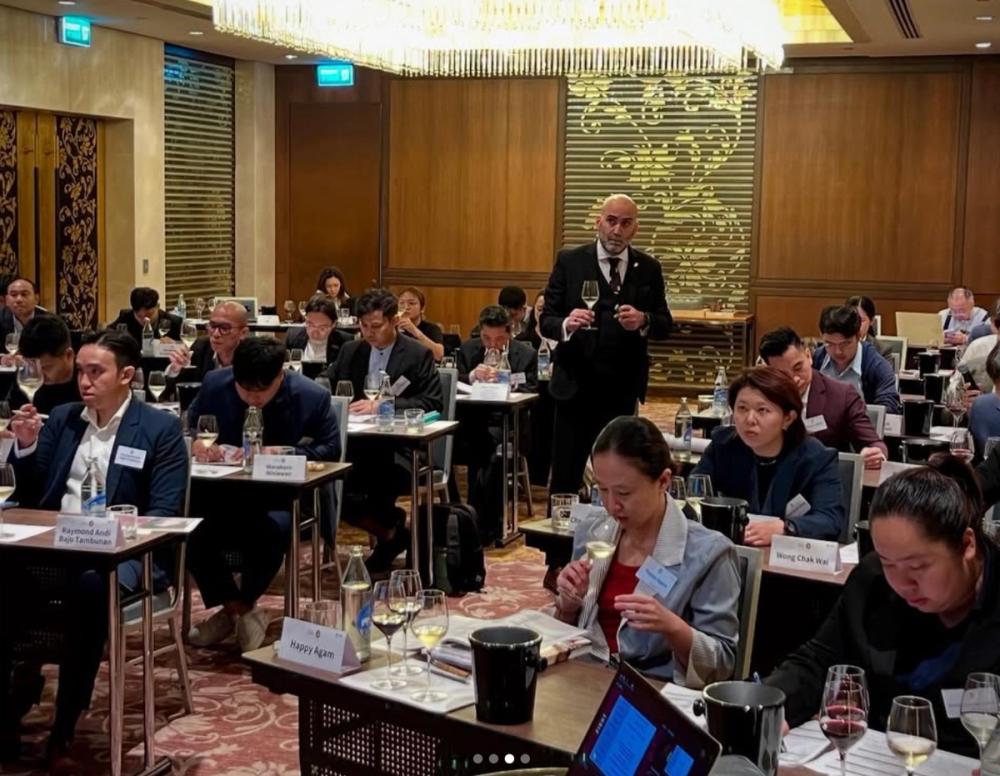
A CMS training course in Bangkok
The wine world evolves so quickly with each new vintage, emerging wine regions, new winery acquisitions, and trends. We gather a wealth of knowledge while studying for the Master Sommelier exam, but true to our ethos, we don’t present all of this to the guest in a dull manner.
Therefore, passing the MS exam is an excellent way to share knowledge through teaching and mentoring the next generation of sommeliers. Whether that’s formally in our classes and exams or daily at work with their staff.
What skills and disciplines do you need to be a Master Sommelier?
Firstly, you need to be a skilled waiter, understand the dynamics of a restaurant, know how the service operates, and grasp the ebb and flow between front and back of house. An easy manner that allows you to approach a table and converse with guests, along with the ability to perform well under pressure. Diplomacy, organisation, and being a good leader are essential. These are just the basics.
Then, you need to be very curious and constantly ask yourself why and how, nurturing a thirst for understanding, plus a love of studying and tasting, and enjoying doing it. Also, be humble about the enormity of the task you have either completed or are undertaking.
What is involved to do the MS exam?
There are three sections: tasting, theory, and practical. Each section requires a pass mark of 75%. The tasting involves assessing, describing, and orally concluding six wines within 25 minutes, usually meaning correctly identifying five of the six.
The theory is conducted orally, with two senior MS’ asking questions for about 50 minutes, designed to simulate questions that guests may pose in a restaurant setting.
Lastly, the practical exam takes place in a room set up like a restaurant. Candidates must demonstrate their proficiency in decanting, opening and serving sparkling wines, food and wine matching, identifying certain products, and completing a calculus exam to showcase their business acumen.
How much does it cost?
The Master Sommelier exam costs £1,100, but you must pass all three levels – Introductory (level one), Certified (level two), and Advanced (level three). The total expense will be approximately £3,000 over five to 10 years. We aim to keep our prices very affordable since many of our students work in hospitality, which is not known for its high wages.
You also offer scholarships - can you explain how they work?
We offer 12 global scholarships that cover the fees for levels one and two. They are aimed at individuals with low incomes, especially in countries where their employers might not provide sponsorship. Many of our scholarships are awarded to students in South Africa or India.
How are the exams put together and how much have they changed over the years?
The structure of the exams has not changed much. It still focuses on teaching and examining the three pillars: theory; tasting; and practical. We have a board of directors, many of whom also lead panels - for example, our practical panel includes a board director, two experienced MS’ and two who have recently passed. They will develop and write the tasks for the practical examinations. We have similar arrangements for tasting and theory.
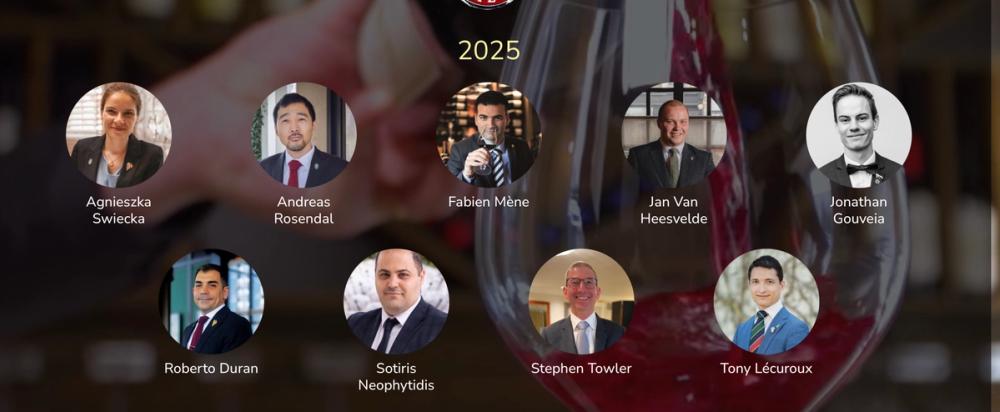
All the Master Sommeliers who passed the final exams in 2025
Clearly, the wine world has expanded over the years, with new countries, regions, and laws added, but access to information via the internet and specialist wine websites has made research easier, though remembering it will always be the challenging part.
Has 2025 has been another successful year for MS qualifications?
A very successful year. The MS exams permit you to pass all three sections within a three-year period. For example, you might pass the theory and practical in the first year, which would mean you have two more years to complete the Tasting. After this, you reset back to zero parts.
The exam in Austria in June saw quite a few candidates who had been taking the exams for several years but only had one part left to complete, allowing them to overcome their last hurdle and pass. Most had been attempting the exams for six to 10 years.
Any other developments with CMS you would like to talk about?
We are updating our course textbook ‘Sales and Service for the Wine Professional’, now in its sixth edition, authored by our president and founder, Brian Julyan. It will be available as both an e-book and a hardcover. We also look forward to celebrating our 50th anniversary in 2027.
* You can find out more about the work of the Court of Master Sommeliers at its website here.
